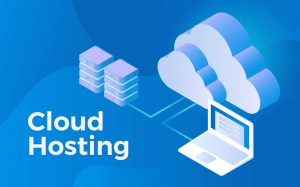How to Obtain a Startup Loan with No Funds

Struggling to get a startup loan without any funds? Many new business owners face this challenge. Fortunately, there are various ways to get the funds you need, even if you don’t have cash available with you as capital.
It starts with small loans and credit lines to grants then ends with crowdfunding. So, you have choices and you can select one that works with you.
You can get a loan for a startup with no revenue in various ways. Finding the best option, however, can be tough.
So, want to know more? Well, here in this blog I will share details about how to obtain a startup loan with no funds, Here, you will also learn about the best way to get a loan. So, let’s get started.
Start-Up Loans for Small Businesses with No Funds
You may find many start-up loans for small businesses with no funds. Among all these loans, 8 are very famous. Here I will explain the top 8 loans for small businesses with no funds. So, let’s begin.
Microloans
Microloans are small loans, usually up to $50,000. They can help cover your startup costs. These loans are great for new businesses because they often don’t require high revenue. You can find microloans through the SBA (Small Business Administration), nonprofit organizations, and some government programs.
Business Lines of Credit
A business line of credit provides a malleable fiscal mechanism. Funds are accessed incrementally, not as a singular sum. Borrowing is capped at a designated limit. Interest applies solely to the portion drawn. It is optimal for managing liquidity issues. It also suits unforeseen financial demands.
Business Grants
Business grants constitute a remarkable financial avenue, distinct from loans in that they require no repayment. However, they are frequently subject to intense competition, and eligibility generally hinges on meeting precise criteria.
Business Credit Cards
Business credit cards operate similarly to personal credit cards but are specifically customized for corporate expenditures. They can help manage daily expenses and build your business’s credit history. Some cards offer rewards or cash back, which can be an added benefit for your startup.
Crowdfunding
Crowdfunding facilitates the accumulation of capital by aggregating contributions from a diverse populace through digital platforms. There are different types of crowdfunding, but most startups use rewards-based or equity-based crowdfunding.
Equipment Loans
If your business needs expensive equipment, an equipment loan can help you buy it. The equipment acts as collateral for the loan. This lowers the lender’s risk and makes it easier for startups to qualify.
Invoice Financing
Invoice financing, or accounts receivable financing, facilitates the procurement of capital by leveraging outstanding invoices. This financial stratagem proves invaluable when immediate liquidity is essential despite the deferral of receivables.
The lender disburses a portion of the invoice amount, with the residual balance, net of any fees, remitted upon the receipt of payment from the client.
Merchant Cash Advance
A merchant cash advance (MCA) offers quick funding based on your past credit and debit card sales. It is easy to get, even with bad credit. You repay it through a percentage of your daily sales or fixed payments. However, keep in mind that MCAs can be expensive due to high fees and interest rates.
Getting A Small Business Loan without Money or Revenue
Many people ask how to get a small business loan without money or revenue. If you are one of them, you will get your answer here. So, have a look at the explained answer here:
Research Lender Requirements
Different lenders have different requirements. Before applying, find out what each one needs. Some lenders are more flexible, especially if you’re just starting or have little revenue.
Check their basic criteria, like how long your business has been running, your personal credit score, and your business’s income.
A Lender That Accepts Low or No Revenue
Traditional banks and credit unions usually want to see regular income before giving a loan. However, some online lenders are open to businesses with little or no revenue.
Lenders like Fundible, Kiva, and PayPal offer loans to startups with low incomes. They might charge higher interest, but they can be a good option if others won’t help.
Be Aware of Cash Flow and Assets
Lenders need to see that you can repay the loan. If your cash flow is weak, you might need to offer something valuable as collateral. This could be equipment, vehicles, or inventory.
Using collateral reduces the lender’s risk and can make it easier to get approved. You might also use unpaid invoices to get funding through accounts receivable financing.
Know How Much Loan You Can Afford
Before accepting a loan, make sure you can handle the payments. Use a loan calculator to estimate your monthly payments and total interest. Check if these fit into your business budget.
If the payments seem too high, consider negotiating better terms or looking for a different lender. You must ensure that the loan can be managed without unduly burdening your financial stability.
Pros and Cons of Small Business Loans with No Money
You will face some pros and cons of small business loans with no money. Here, I will share 5 pros and 3 cons for small business loans with no money. Knowing these pros and cons helps you to make the right decision. SO, here they are:
Pros
The top pros are:
Boosts Growth Quickly
Acquiring a small business loan can catalyze immediate expansion. Should a promising opportunity present itself while liquid assets are insufficient, a loan provides the means for rapid growth.
Keep Full Control
Securing a loan avoids the necessity of relinquishing any ownership stakes in your enterprise. Unlike when you bring in investors, which means sharing profits, you stay in control of all business decisions.
Safe and Reliable
Loans from established banks are usually a safe bet. These banks have been around for a long time and have a strong reputation, making them a more secure choice compared to newer online lenders.
Flexible Use of Funds
The loan’s capital is at your disposal. Although initially governed by a plan, its application remains flexible to accommodate evolving business requirements. This flexibility helps you handle unexpected expenses.
Builds Your Credit
Making regular payments on your loan can help improve your business credit score. This is useful for getting better loan terms in the future. Just check that your lender reports payments to credit agencies.
Cons
The top cons are:
Tough to Qualify
Getting a loan without any money upfront can be tough. Lenders generally stipulate a strong credit rating and an extensive business track record. Approval can be elusive for nascent ventures or those with limited revenue. The application process frequently demands substantial time.
Long Application Process
The application process frequently demands substantial time. You’ll need to fill out forms, submit a business plan, and provide financial details. Traditional banks, in particular, may take a while to decide.
Can Be Expensive
Startups often face higher costs because they are seen as risky. Make sure you’re prepared for these expenses so they don’t hurt your business finances.
The Best Way to Get A Loan for A Startup Company with No Revenue
Here, I will share the best way to get a loan for a startup company with no revenue. So, let’s explore the best way together:
1. Explore Your Options
Start by checking out different lenders. Banks, online lenders, and credit unions all have different requirements. Some might need a minimum credit score or certain documents.
2. Offer Collateral
Since you don’t have revenue yet, lenders will likely ask for collateral. This could be personal items like your car or future business earnings. Knowing what you can offer will strengthen your application and give you more choices.
3. Know Your Repayment Limits
Prior to application, ascertain your feasible repayment capability. Conduct an analysis of projected income in conjunction with anticipated outlays. It’s better to borrow a smaller amount that you can handle easily.
4. Read the Terms Carefully
Make sure you understand the loan’s terms. Check the interest rate, repayment schedule, and any extra fees. Some loans have variable rates or penalties for early repayment.
5. Be Prepared for a Personal Guarantee
A multitude of lenders will mandate a personal guarantee. This requirement imposes personal liability upon you for the loan if your enterprise defaults on its repayment obligations. While it can help you get the loan, it also means more personal risk.
6. Weigh the Pros and Cons
A loan can give your business a lead-off, but it comes with risks. Balance the benefits of getting the loan with the repayment obligations. Consider how the loan will affect your cash flow and whether you can keep up with payments, even if things get tough.
7. Have a Strong Business Plan
Present an exhaustive strategic framework. Include precise market analysis and rigorous financial forecasts. This will convey a sophisticated approach to leveraging the loan for financial success.
Should You Get A Business Loan with No Money?
Deciding if you should take a business loan with no money depends on your situation. If you are just starting, want to grow, or see a good opportunity, a loan could help, even if you don’t have money upfront. But you need a solid plan to pay it back so you don’t end up in financial trouble.
If your business lacks sufficient revenue or needs the loan for routine expenses, postponing the application might be wise. Taking on debt without a steady income can lead to problems like missed payments and damaged credit.
So, if you believe in your business and have a plan to grow, a loan might be a good option. Just make sure you’re ready for the responsibility and risks that come with it.
Final Thought
In the end, getting a startup loan with no funds is very tough. Explore options like microloans, credit lines, or crowdfunding. You must have a solid plan and understand the loan terms before you apply.
A loan can help your business grow. So, prepare yourself and turn your business ideas into reality with a loan.






